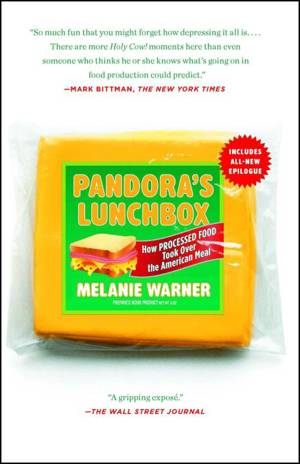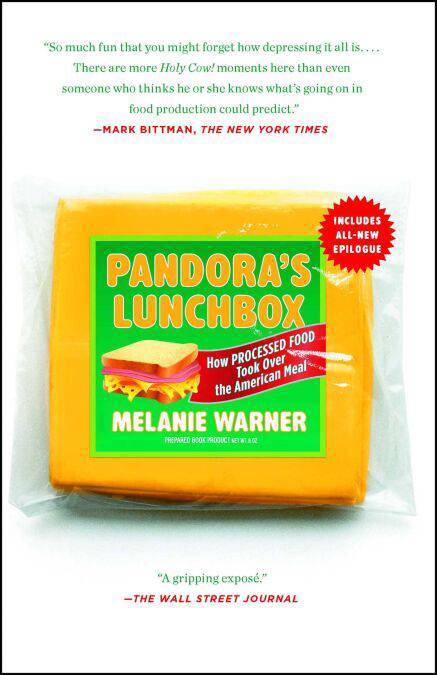
- Afhalen na 1 uur in een winkel met voorraad
- Gratis thuislevering in België vanaf € 30
- Ruim aanbod met 7 miljoen producten
- Afhalen na 1 uur in een winkel met voorraad
- Gratis thuislevering in België vanaf € 30
- Ruim aanbod met 7 miljoen producten
Zoeken
Pandora's Lunchbox E-BOOK
How Processed Food Took Over the American Meal
Melanie Warner
E-book | Engels
€ 15,65
+ 15 punten
Uitvoering
Omschrijving
In the tradition of Fast Food Nation and The Omnivore’s Dilemma comes an “indispensable,” (New York Newsday) fascinating, and cutting-edge look from the author of The Magic Feather Effect at the scary truth about what really goes into our food.
If a piece of individually wrapped cheese can retain its shape, color, and texture for years, what does it say about the food we eat and feed to our children?
Former New York Times business reporter and mother Melanie Warner decided to explore that question when she observed the phenomenon of the indestructible cheese. She began an investigative journey that took her to research labs, university food science departments, and factories around the country. What she discovered provides a rare, eye-opening—and sometimes disturbing—account of what we’re really eating. Warner looks at how decades of food science have resulted in the cheapest, most abundant, most addictive, and most nutritionally inferior food in the world, and she uncovers startling evidence about the profound health implications of the packaged and fast foods that we eat on a daily basis.
Combining meticulous research, vivid writing, and cultural analysis, Warner blows the lid off the largely undocumented—and lightly regulated—world of chemically treated and processed foods and lays bare the potential price we may pay for consuming even so-called healthy foods.
If a piece of individually wrapped cheese can retain its shape, color, and texture for years, what does it say about the food we eat and feed to our children?
Former New York Times business reporter and mother Melanie Warner decided to explore that question when she observed the phenomenon of the indestructible cheese. She began an investigative journey that took her to research labs, university food science departments, and factories around the country. What she discovered provides a rare, eye-opening—and sometimes disturbing—account of what we’re really eating. Warner looks at how decades of food science have resulted in the cheapest, most abundant, most addictive, and most nutritionally inferior food in the world, and she uncovers startling evidence about the profound health implications of the packaged and fast foods that we eat on a daily basis.
Combining meticulous research, vivid writing, and cultural analysis, Warner blows the lid off the largely undocumented—and lightly regulated—world of chemically treated and processed foods and lays bare the potential price we may pay for consuming even so-called healthy foods.
Specificaties
Betrokkenen
- Auteur(s):
- Uitgeverij:
Inhoud
- Aantal bladzijden:
- 288
- Taal:
- Engels
Eigenschappen
- Productcode (EAN):
- 9781451666755
- Verschijningsdatum:
- 25/02/2013
- Uitvoering:
- E-book
- Beveiligd met:
- Adobe DRM
- Formaat:
- ePub

Alleen bij Standaard Boekhandel
+ 15 punten op je klantenkaart van Standaard Boekhandel
Beoordelingen
We publiceren alleen reviews die voldoen aan de voorwaarden voor reviews. Bekijk onze voorwaarden voor reviews.








